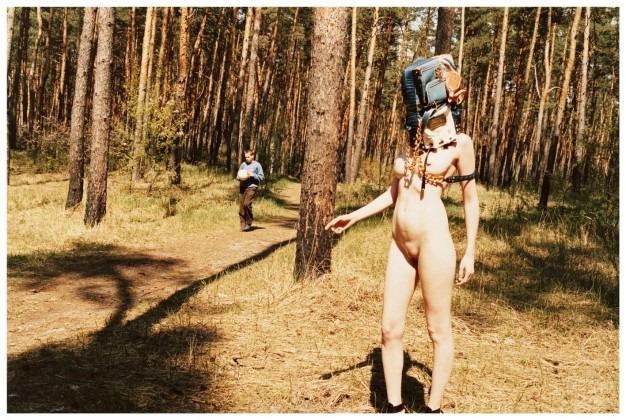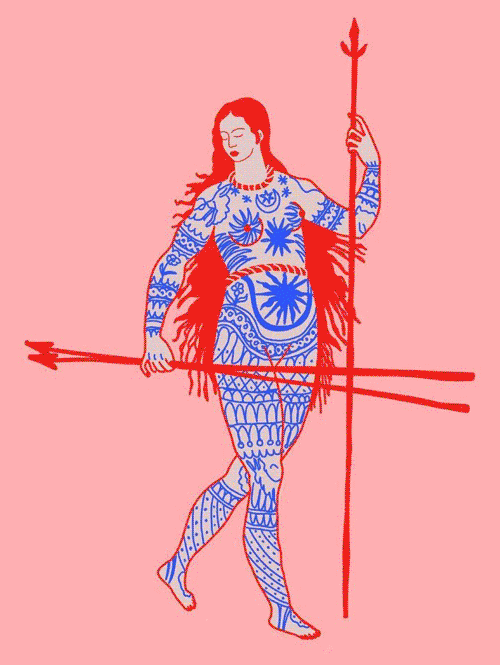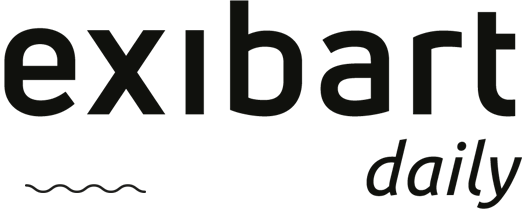Create an account
Welcome! Register for an account
La password verrà inviata via email.
Recupero della password
Recupera la tua password
La password verrà inviata via email.
-
- container colonna1
- Categorie
- #iorestoacasa
- Agenda
- Archeologia
- Architettura
- Arte antica
- Arte contemporanea
- Arte moderna
- Arti performative
- Attualità
- Bandi e concorsi
- Beni culturali
- Cinema
- Contest
- Danza
- Design
- Diritto
- Eventi
- Fiere e manifestazioni
- Film e serie tv
- Formazione
- Fotografia
- Libri ed editoria
- Mercato
- MIC Ministero della Cultura
- Moda
- Musei
- Musica
- Opening
- Personaggi
- Politica e opinioni
- Street Art
- Teatro
- Viaggi
- Categorie
- container colonna2
- container colonna1
52 Biennale. Padiglione ucraino
Aleksander Soloviov e Viktor Sydorenko curano la mostra “A Poem about an Inland Sea”
Comunicato stampa
Segnala l'evento
Ukraine is vital to understanding processes of postmodernism and globalization taking place in other zones across Europe and the world. As the contradictions and negotiations between local and global issues continue, and as specific cultural traditions are fashioned by these processes, Ukraine becomes an area to explore key artistic and cultural trends.
Throughout the humanities and social sciences, scholarly work has focused on the way globalization and trans-nationalism are altering our concepts of culture. We are living through a break with the era of totally separable societies. The idea of trans-culturalism points towards the new arrangements of people, identities and social practices that are currently emerging, and it belongs to a longer history that needs reinterpretation. As cultural systems of exchange burst former boundaries, people experience both a sense of liberation and anxiety, for the institutions and ways of life that had grounded their definitions of self are challenged. Inequalities among communities, regions and nations, moreover, different people will have unequal power as well as distinct resources when it comes to shaping the trans-cultural future.
How do the terms “culture” and “community” function relatively to one another in various disciplines, including art history, literary theory, philosophy, cultural studies and architecture? The expressionist model often used to frame such inquiries – making a culture the expression of a singular community – is increasingly inadequate, given the research on the many differences within the communities and the incessant back-and-forth of borrowings among cultural groups.
In light of the changes involved in trans-culturalism, how do globalizing forces foreclose some forms of cultural life and open up others? What are the aims of culture in a globalized world? The answers we give to such questions will determine how we conduct ourselves as artists, citizens and scholars.
This project including artists from Ukraine, United Kingdom and United States will demonstrate the artists’ cohesive vision and their commitment to exploring new and active roles for the artists in society. The exhibition plans on raising questions such as the important Ukrainian film director Alexander Dovzhenko did in the script for “Poem about an Inland Sea” and throughout his career - what is it to be Ukrainian? Who are the Ukrainian people? Where are the Ukrainian people?
Like chroniclers appropriating knowledge, the artists - Serhiy Bratkov, Dzine (Carlos Rolon) Alexander Hnilitsky/Lesia Zaiats, Boris Mikhailov, Juergen Teller, Mark Titchner, Sam Taylor-Wood are always on the look-out for whatever pushes the limits of their past and present. Their work is the product of a complex deliberation. Producing images from their own reality, they offer things that are already embedded in our memory of Ukraine.
Peter Doroshenko
President
PinchukArtCentre, Kyiv
Director
Baltic Centre for Contemporary Art, Gateshead
Throughout the humanities and social sciences, scholarly work has focused on the way globalization and trans-nationalism are altering our concepts of culture. We are living through a break with the era of totally separable societies. The idea of trans-culturalism points towards the new arrangements of people, identities and social practices that are currently emerging, and it belongs to a longer history that needs reinterpretation. As cultural systems of exchange burst former boundaries, people experience both a sense of liberation and anxiety, for the institutions and ways of life that had grounded their definitions of self are challenged. Inequalities among communities, regions and nations, moreover, different people will have unequal power as well as distinct resources when it comes to shaping the trans-cultural future.
How do the terms “culture” and “community” function relatively to one another in various disciplines, including art history, literary theory, philosophy, cultural studies and architecture? The expressionist model often used to frame such inquiries – making a culture the expression of a singular community – is increasingly inadequate, given the research on the many differences within the communities and the incessant back-and-forth of borrowings among cultural groups.
In light of the changes involved in trans-culturalism, how do globalizing forces foreclose some forms of cultural life and open up others? What are the aims of culture in a globalized world? The answers we give to such questions will determine how we conduct ourselves as artists, citizens and scholars.
This project including artists from Ukraine, United Kingdom and United States will demonstrate the artists’ cohesive vision and their commitment to exploring new and active roles for the artists in society. The exhibition plans on raising questions such as the important Ukrainian film director Alexander Dovzhenko did in the script for “Poem about an Inland Sea” and throughout his career - what is it to be Ukrainian? Who are the Ukrainian people? Where are the Ukrainian people?
Like chroniclers appropriating knowledge, the artists - Serhiy Bratkov, Dzine (Carlos Rolon) Alexander Hnilitsky/Lesia Zaiats, Boris Mikhailov, Juergen Teller, Mark Titchner, Sam Taylor-Wood are always on the look-out for whatever pushes the limits of their past and present. Their work is the product of a complex deliberation. Producing images from their own reality, they offer things that are already embedded in our memory of Ukraine.
Peter Doroshenko
President
PinchukArtCentre, Kyiv
Director
Baltic Centre for Contemporary Art, Gateshead
07
giugno 2007
52 Biennale. Padiglione ucraino
Dal 07 giugno al 21 novembre 2007
arte contemporanea
Location
PALAZZO PAPADOPOLI
Venezia, San Polo, 1364, (Venezia)
Venezia, San Polo, 1364, (Venezia)
Vernissage
7 Giugno 2007, ore 17
party alle ore 22.30
Sito web
www.ukrainianpavilion2007.org/en
Autore
Curatore









